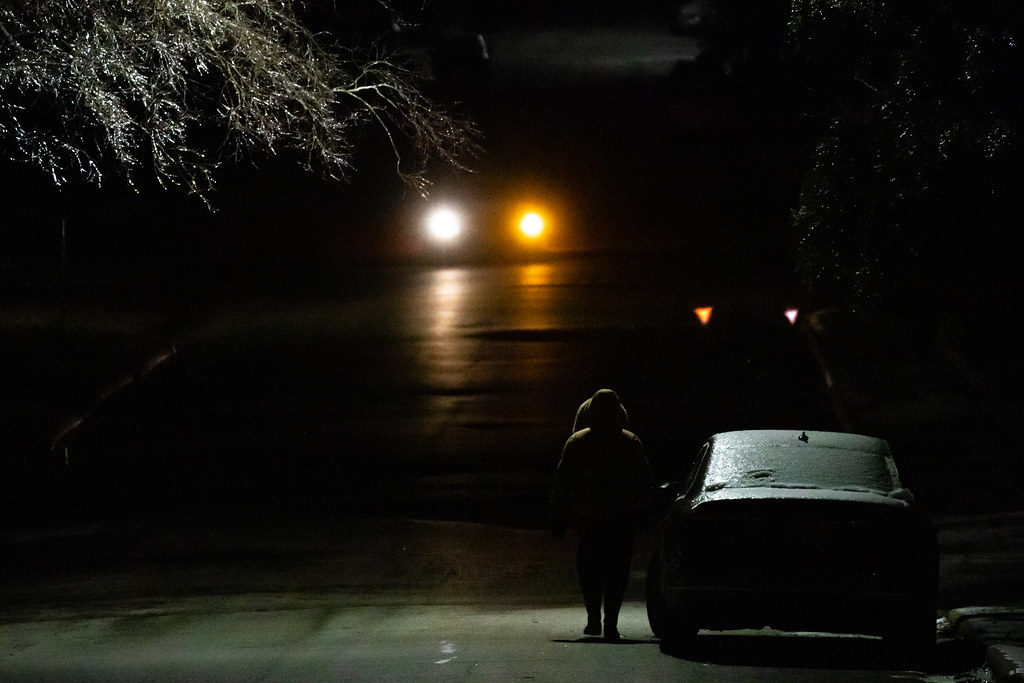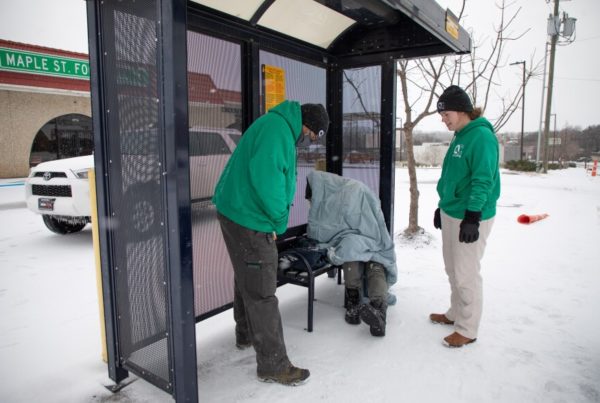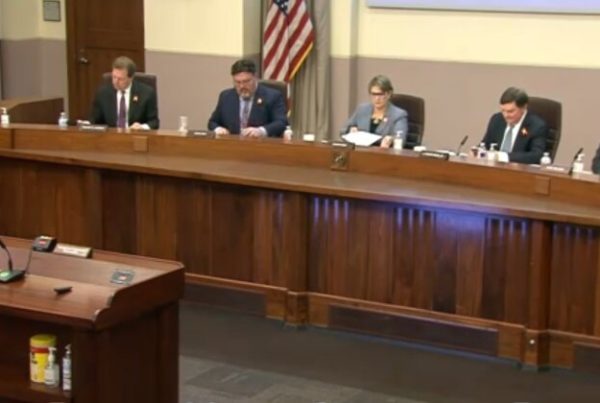On social media, people shared photos of full bathtubs and backup battery sources. Stores were out of bottled water, bread and other staples. Texans were determined to be more prepared for last week’s winter storm than the one in 2021 that knocked out power to huge swaths of Texas. Many also couldn’t get running water, and the Texas electric grid was mere minutes from total collapse. Hundreds died.
But being prepared is one thing. Feeling intense anxiety or experiencing flashbacks is another.
Molly Wang is a mental health advocate for the city of Austin and a therapist and clinical supervisor at Thriveworks in South Austin. She shares some insight about what Texans may be experiencing, why the impact may have been different on different people and how to can help manage anxiety and intrusive thoughts. Listen to the interview in the audio player above or read the transcript below.
This transcript has been edited lightly for clarity.
Texas Standard: I’ve heard a lot of people describe what they’ve been feeling lately as “PTSD.” Is that accurate?
Molly Wang: You know, I would have to agree with them that there are some characteristics of post-traumatic stress disorder that folks are experiencing around this time of year, and it’s because last year, at this time of year, folks experienced a very traumatic event. They lost access to basic necessities that they counted on and they were not prepared. And what happens is when people experience anxiety and stress to that level, they can have what’s called a “psychological trauma.” Psychological trauma is like a damage to the mind. You can call it that, and it’s the result of an overwhelming amount of stress that exceeds a person’s ability to cope or integrate the emotions involved with that experience.
Is this type of anxiety something that might lessen over time?
It depends on the person, and for some people, it might lessen over time with PTSD. There are short-term reactions. But then there are long-term reactions to the short term. Reactions are reactions that I think many of us experience: they’re shock and denial when it first happened. But the long-term reactions can be flashbacks, intrusive thoughts, dysregulated mood, insomnia. And some people can even experience physical symptoms like headaches and nausea when they’re reminded of what happened last year.
If they see a trigger, such as the icicles outside the window or dropping temperatures, these are triggers of what happened last year. And so for some of us, if we’re aware that we’re having these intrusive thoughts and we’re aware of these symptoms and signs of anxiety, then we can identify them and bolster our support system to overcome them like we would with any type of stress.
For some of us, it may not be as easy. And usually, if you are somebody who already has some anxiety or some depression such as seasonal affective disorder or social anxiety or any any type of mental health condition, then you are more vulnerable to the challenge of overcoming this at a different rate.
What about coping tactics? Is there something that you would recommend that people do to help ease some of the big fears that they have?
Yes. Recognizing that you are experiencing intrusive thoughts is a very important strategy because our thoughts are our thoughts; our thoughts are not facts. And once we become aware of that, then we can write them down and create a little bit of distance between between ourselves and thoughts. This is called “thought diffusion.” And so some people I know like to keep a little journal where they write down some intrusive thoughts that they might have around what happened last year and any reminders outside the window. They see fear that it might happen again; they can write these thoughts down.
Another strategy is more related to prevention. So, shoring up your your physical health, making sure that you are already exercising regularly, eating nutritious meals. These are things that you could do to prevent excessive anxiety. So you’re just more immune to the effects.
Another strategy is routine. Routine can be very healing because what happened last year threw us off our routine, and routine is often how most of us get through the day. For instance, when I worked at a local psychiatric hospital, I saw many admissions, and these were individuals who had severe disruptions in their routines. And so keeping a routine, keeping a regular schedule can bolster somebody from the effects of anxiety.
And then there are also some day-to-day strategies, such as mindful breathing, progressive muscle relaxation, body scans that one can do in the comfort of one’s own home if that is available to them. And these are activities for your mind that increase the mind-body connection so you become more aware of where you’re holding tension in your body and where your your anxious thoughts might be affecting parts of your body. And basically, they help you relax and help you become better equipped to deal with any effects of anxiety.
I’ve heard that avoiding intrusive thoughts is not a good thing to do. Consciously avoiding, say, looking out the window, for example. Is that accurate?
Avoiding can be very damaging. Avoiding anxious thoughts does not help somebody move on. Recognizing them is the first step. So earlier, when I mentioned writing them down to create distance between a person and their thoughts, that’s not, I don’t want to create impression that that’s the same as avoiding would be.
If you’re starting to experience some intrusive thoughts, you would maybe distract yourself or numb yourself, turn to maybe drugs or alcohol, which I’ve seen individuals do, instead of really making room for them by writing them down and looking at them, and maybe challenging those thoughts with different thoughts. So if you’re having a thought such as, “Oh my goodness, I see icicles out the window! We’re going to lose power and I’m not going to be able to feed my family; I’m not going to be able to keep them warm.” Instead, say to yourself, “I’m having thoughts that I may not be able to keep my family safe, and I’m going to look at the reality of the situation here.“
So, put some distance between those thoughts because they are just thoughts, is the bigger message?
Right. And if we overidentify with them, then what happens is that they they become our day to day; they become a reality; they become facts that start to affect our behavior.
If you’re feeling overburdened by this, what do you recommend folks do?
If you’re noticing that you are continuously having excessive worry, insomnia, dysregulated moods, flashbacks for more than a week or two sometimes, and you’re having them every day for an hour or two a day, and they’re nonstop, then – of course, I have to preface by saying this is this is different for everyone – then I think the most important thing you can do is to access licensed professional help. So seeing a professional counselor, a social worker or a psychologist, so you can get a professional evaluation. And that would be the first step to determine what the most appropriate course of treatment might be for you.














